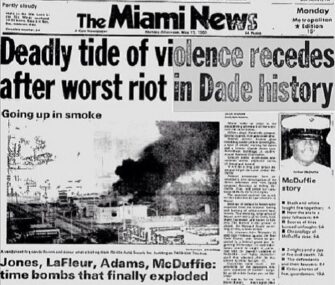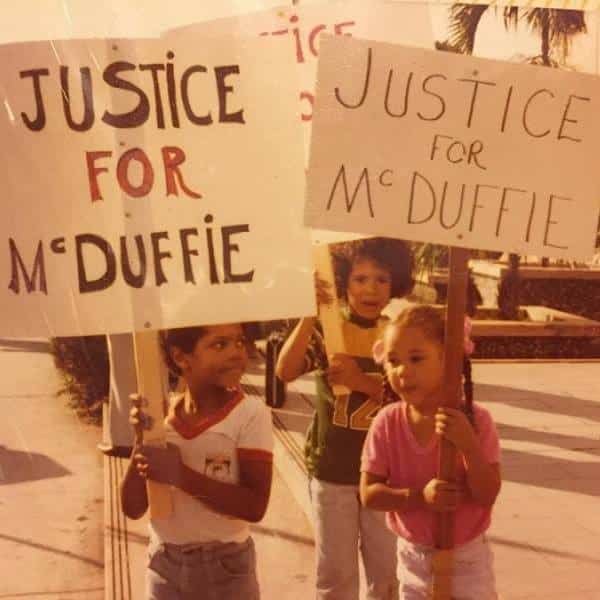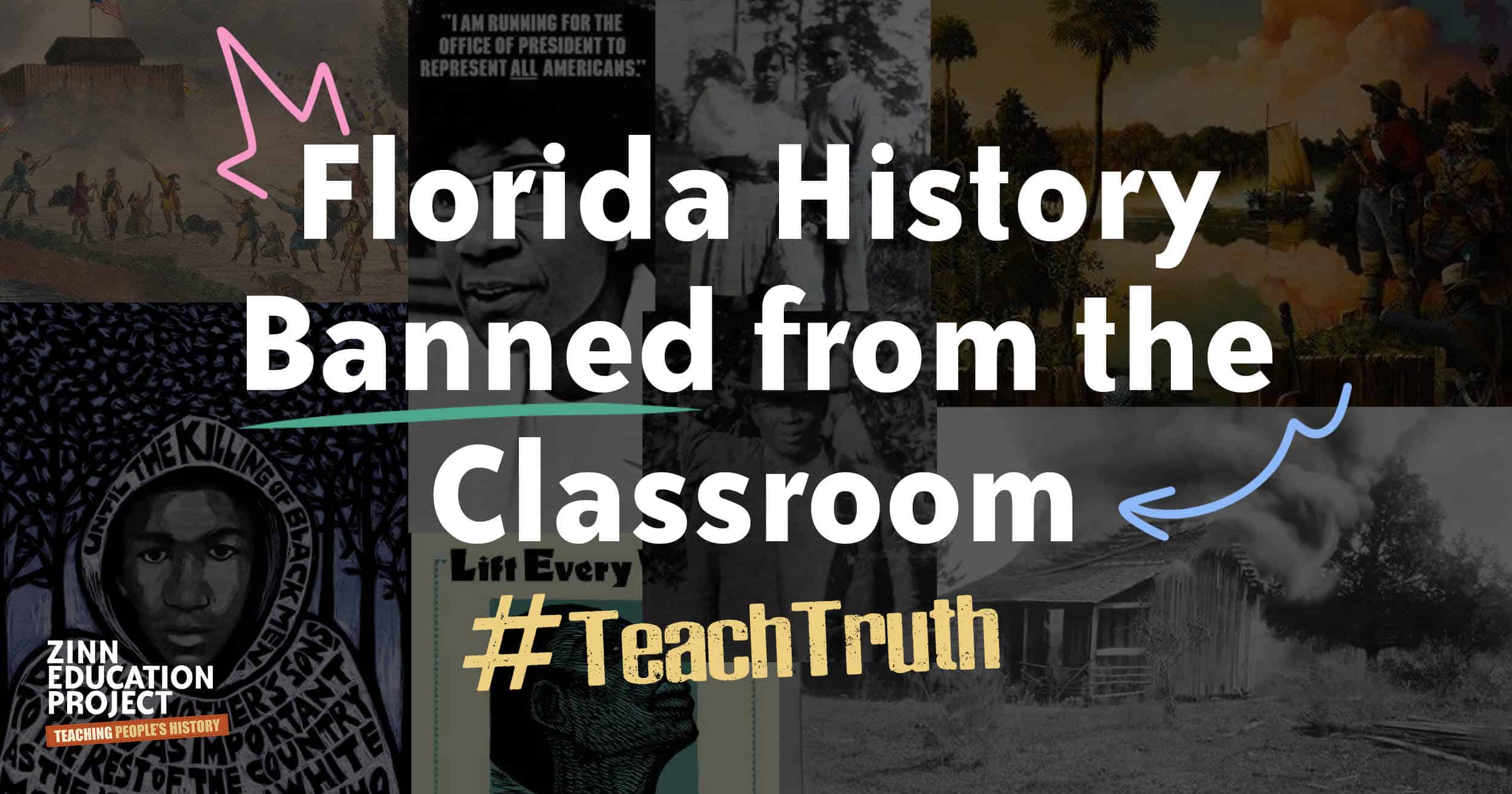On Saturday, May 17, 1980, an all-white male jury acquitted four Dade County police officers in the brutal murder of Arthur McDuffie — an unarmed Black insurance salesman and former Marine — on the streets of Miami, Florida. Combined with other recent instances of police abuse in the city, Black residents rose up in protest at the injustice of these acquittals and riots quickly broke out across the city.
As Dr. Marvin Dunn writes in The Miami Riot of 1980; The Killing and the Trial,
By the mid-1970s, I had become increasingly concerned that race and ethnic relations in Miami were deteriorating. There had been a series of questionable police actions involving blacks including a sexual assault on a nine-year-old black girl by a Florida State trooper in his patrol car. He was not punished and vanished without paying state ordered restitution. Unrelenting poverty was not being addressed and there was a growing sense among Miami blacks that black concerns and priorities were being displaced by Cuban American concerns and priorities. Although these and other issues were pressing in Miami in 1980, by far the greatest concern was for police brutality in the killing of an unarmed black insurance agent named Arthur McDuffie. It was that killing that tipped the scale and pushed Miami into the abyss.
 The protests and riots lasted for four days, leaving at least 18 dead and millions of dollars in property destruction across the city. Dunn continues,
The protests and riots lasted for four days, leaving at least 18 dead and millions of dollars in property destruction across the city. Dunn continues,
The riot was caused by outrage in the black community that five white county police officers had beaten a black man to death for what should have been a speeding ticket and were declared not guilty by an all-white jury. It was caused by a deep sense among African Americans of race-inspired injustice, not just in the McDuffie killing, but in other instances of abuse by white police officers which had taken place preceding the McDuffie incident. It was caused by the same police-community dynamics that today keeps the nation on edge. Read more.
Continue reading The Miami Riot of 1980; The Killing and the Trial by Dr. Marvin Dunn, and find additional resources below for teaching outside the textbook about racism and police brutality.









Twitter
Google plus
LinkedIn